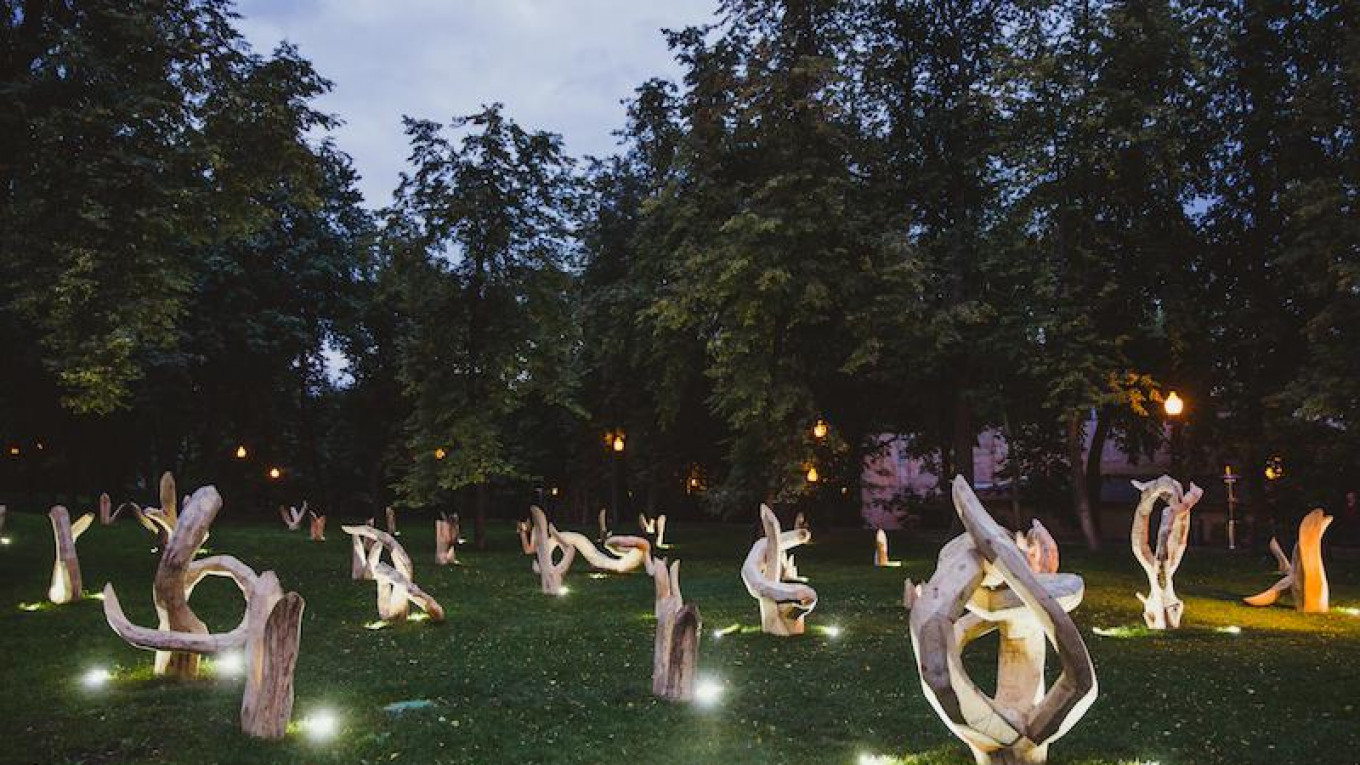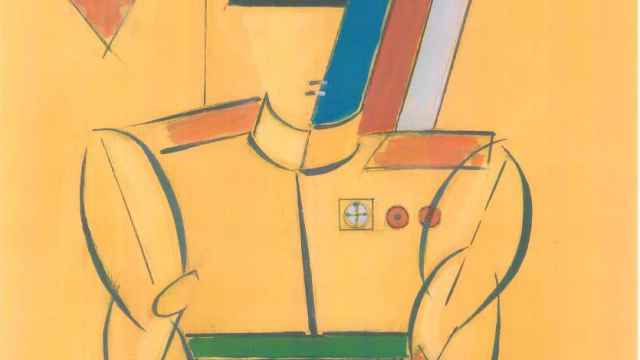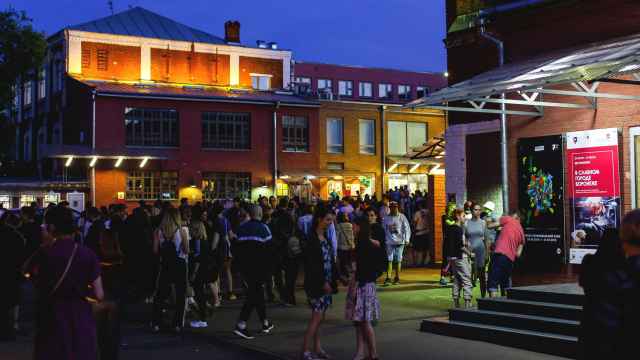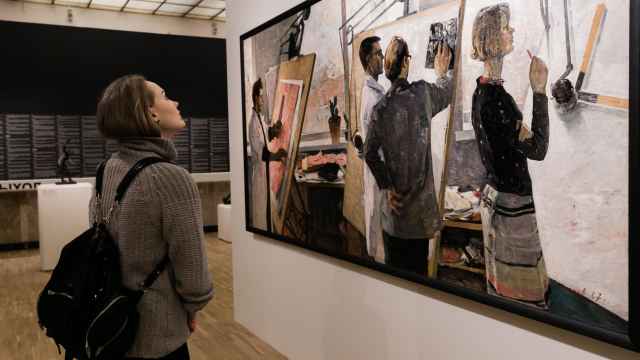If you’ve noticed an interesting new addition to Gorky park during your autumn strolls over the past couple of weeks, you have Nikolai Polissky to thank for it.
The brand new piece of public art is called “Signet,” just as a premium Scotch whisky by Glenmorangie, who commissioned the object. Polissky is Russia’s leading land-artist and one of the founders of the popular Nikola-Lenivets park in the Kaluga Region, 200 kilometers from the capital. His latest project can be enjoyed by the millions of people who pass through Gorky Park each year.
Polissky moved to Nikola Lenivets about twenty years ago, seeking inspiration from nature. “When I was 42 years old I decided to make a change in my life, I stopped painting and started making land art. When the locals helped me build 200 snowmen I realized I had a unique resource that no other artist had. Six hundred hectares and enough and people willing to lend a hand.”
Formerly a member of the Perestroika-era art movement Mitki, Polissky gave all his paintings away and concentrated on land art. Instead of snow, he started using more durable materials for his installations, giving a preference to wood, which is, in his own words, “cheap and abundant.”
His installations are usually large scale and site-specific, augmenting the features of the natural landscape. His most famous works are Universal Mind, a huge installation that explores artificial intelligence and the power of human imagination, and Beaubourg, inspired by the architecture of Pompidou Center in Paris, both in the village of Nikola-Lenivets.
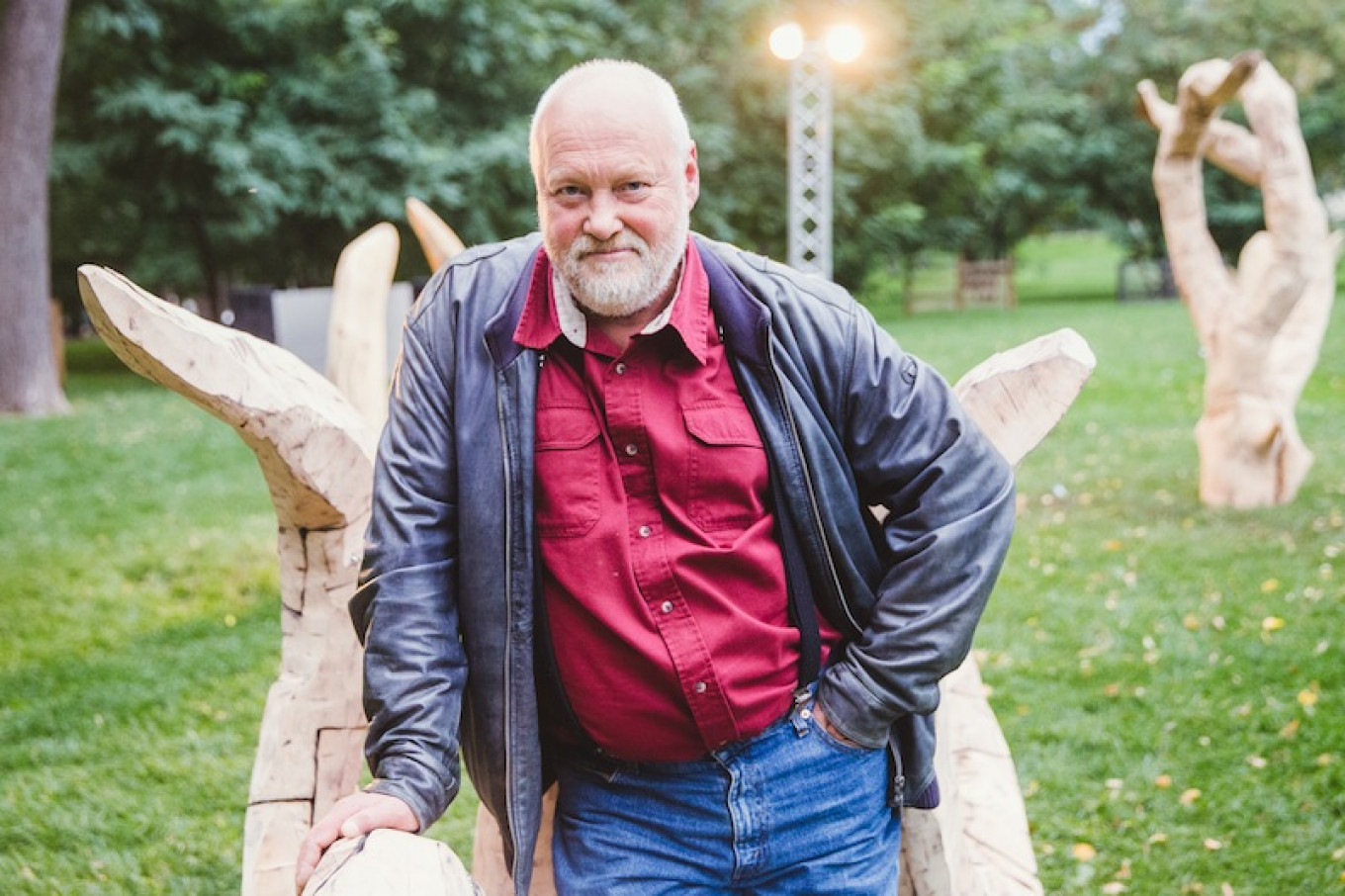
Signet was inspired by the medieval Hilton of Cadboll stone monument,
which Polissky visited on a trip to Scotland. In the stone’s intricate
carvings, he saw something like ferns.
The signet sculpture
depicts this plant sprouting from the earth. It took a long time to find
the perfect curved pieces of wood, before the wooden “plants” were
installed on a metal plate which was then covered by earth and grass.
Signet is not the first public art project of Polissky to grace a Moscow
park. While some have been worn away by time and weather, you can still
see his triumphal arch-like structure called “Likhoborskiye Gate” on
the bank of a small river in Lianozovsky park in the north-west of the
city.
Polissky is pleased that “Signet” will be seen by people
new to land art, and not just those who have already been to
Nikola-Lenivets and developed a taste for it. “I like when people pass
by while I’m working on a sculpture and ask me what it is. Because no
one knows what future public art will look like. I believe there is a
great shift coming in our understanding of what constitutes art.”
You can find “Signet” on a meadow to the left of the Golitsynsky Pond, about a ten-minute walk from the main entrance.
A Message from The Moscow Times:
Dear readers,
We are facing unprecedented challenges. Russia's Prosecutor General's Office has designated The Moscow Times as an "undesirable" organization, criminalizing our work and putting our staff at risk of prosecution. This follows our earlier unjust labeling as a "foreign agent."
These actions are direct attempts to silence independent journalism in Russia. The authorities claim our work "discredits the decisions of the Russian leadership." We see things differently: we strive to provide accurate, unbiased reporting on Russia.
We, the journalists of The Moscow Times, refuse to be silenced. But to continue our work, we need your help.
Your support, no matter how small, makes a world of difference. If you can, please support us monthly starting from just $2. It's quick to set up, and every contribution makes a significant impact.
By supporting The Moscow Times, you're defending open, independent journalism in the face of repression. Thank you for standing with us.
Remind me later.


